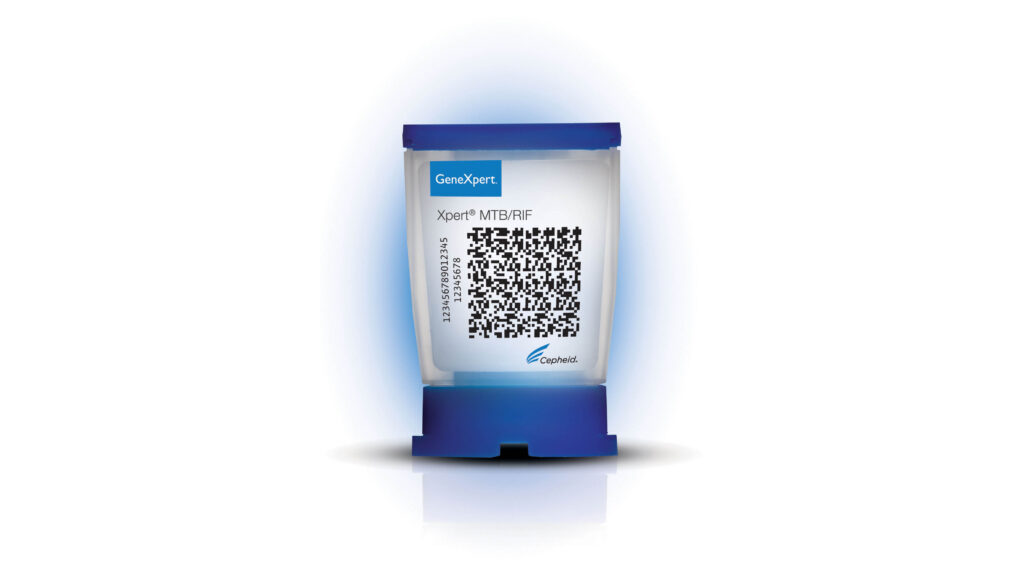John Green, a novelist and high-profile YouTuber, is once again leveraging his star power in the global fight to end tuberculosis. His latest target? The diagnostics company Cepheid and the price of its tuberculosis test, GeneXpert.
Cepheid sells individual test cartridges for $9.98 each, which lab technicians can analyze in a speedy machine that is also sold by the company. But in a scathing YouTube video posted Tuesday, Green argued the price is prohibitive for patients in lower-income countries. Citing an analysis from Doctors without Borders, he noted the tests cost around $4.64 to make. Halve the $10 price tag, Green maintained, and the company can save lives by giving more people access to early detection of TB. Tuberculosis kills 1.5 million people each year, and is most prevalent in countries like India, Indonesia, China, and Nigeria.
advertisement
The controversy isn’t new — Doctors without Borders and other groups have been advocating for a $5 Cepheid test since at least 2019. The organizations also sparred in 2020 over the price of Cepheid’s Covid-19 test. Last year, the advocacy group pushed for the $5 TB test price more strongly in the wake of Cepheid’s waning contract with the World Health Organization. Cepheid dismissed the group’s concerns, calling the cost analysis “flawed” and the demands “unreasonable.”
The movement was at high risk of fizzling out, but Green and his swarm of fans, called nerdfighters, have given it new life. Since Green posted his YouTube video, fans have spammed Cepheid and its parent company Danaher on every social media platform. Activists are hopeful that, this time, the company will listen.
“I want to make it clear to Danaher that people in the rich world are paying attention, and will keep paying attention,” Green told us. “These sorts of escalations are possible and inevitable if they continue to price gouge the world’s poorest people.”
advertisement
A Danaher spokesperson declined to comment, but referred us to a webpage that discusses access to its product.
The campaign comes on the heels of another Green-led push to force Johnson & Johnson to make its lifesaving tuberculosis pill accessible to low-income patients globally. Activists saw a partial win just days after Green joined the fight, with United Nations-affiliated group Stop TB announcing an agreement to distribute cheaper generics across dozens of countries with high rates of disease.
Green said Doctors without Borders and Partners in Health asked him to get involved in the fight to make Cepheid tests cheaper. He became interested in the prevalence of TB after a 2019 visit to Sierra Leone, where he learned more about the health system’s struggles to obtain affordable TB tests and treatments.
“I’ve spent the last four years trying to understand how we came to live in a world where the deadliest infectious disease is incurable,” Green said.
Carole Mitnick, a professor at Harvard Medical School and senior researcher with PIH, is counting on Green’s influence to get Danaher and Cepheid’s attention.
“I think what John and his followers — the nerdfighters — are doing is nothing short of extraordinary and, at least in part, exactly what we’ve needed, which is for more ordinary people, not just global health experts, to get involved in the fight for global health equity,” Mitnick told STAT.
Ordinary people are certainly getting involved, posting homemade Minions memes and refrains of “people over profits” in the comment section of Danaher’s scheduled corporate posts on Twitter and LinkedIn. Green’s YouTube video had upward of 300,000 views as of Wednesday morning, whereas Doctors without Borders’ had a little over 600.
The campaign has clear talking points, comparing Cepheid’s pricing system to the “printer ink” or a “razor blade” business model: sell a printer at a small profit and then increase the price of ink, as customers are already locked into your printer. As he explained it, Cepheid’s printer is the testing machine, and its ink is the test cartridge. Green did not conjure up this comparison himself: He noted in his video that Danaher chief executive officer Rainer Blair described the diagnostics business model as “razor blade” at the J.P. Morgan Healthcare Conference earlier this year.
The goal, Mitnick said, is to get on the radar of Danaher’s shareholders, board members, employees, and pension fund investors — in addition to ordinary people. With enough pressure, the company’s leaders may at least explain their issues with Doctors without Borders’ cost analysis.
Lucica Ditiu, executive director of Stop TB, said the $5 ask is more than fair and could be even lower. Stop TB is committed to driving down costs, Ditiu said, pointing to the group’s negotiation with Indian TB test maker Molbio to bring its price down to around $8. She’s glad to see influencers like Green get involved.
“I think a $5 cost for a rapid molecular test is the right cost to be asked and to be expected in the year 2023,” Ditiu said. “The GeneXpert cartridge and machines appeared 13 years ago.”
Tuesday was day one of many, Green tweeted, as the business day came to a close. He told STAT he had a “nice chat” with a Danaher employee, but has not heard from the company officially. Aside from a significant boost in views and retweets, the impact of Green’s activism is unclear at the moment.
“It’s very easy to confuse what’s on the internet with what’s important and what’s easy to measure,” Green said. “To me, that’s not the metric. The metric is how many people died of TB today and are we making a lot of impact on that.”

